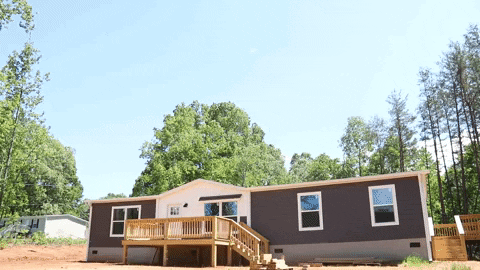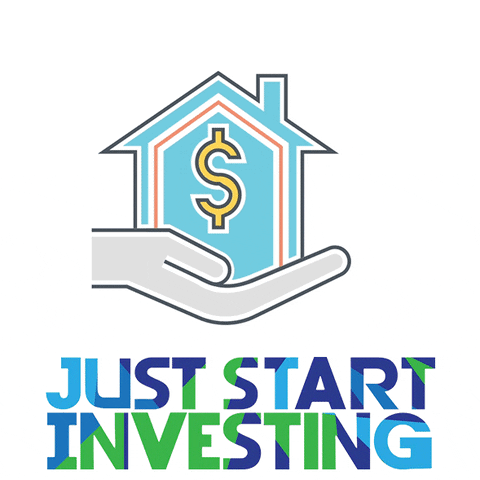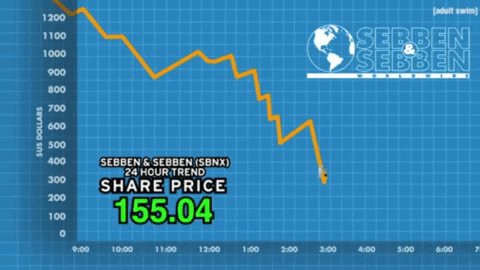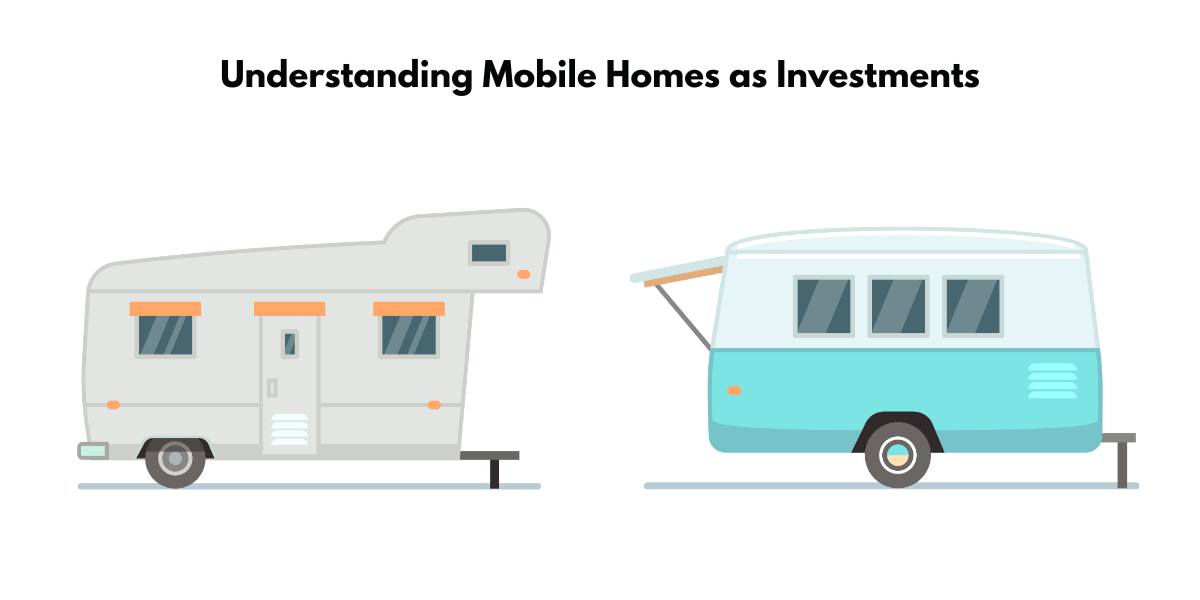Mobile Home As Good Investment: Profit From Investing In Mobile Homes
Introduction to Mobile Home Investing
Understanding Mobile Homes as Investments
Mobile homes, also known as manufactured homes, provide a unique investment opportunity in the real estate sector. Recognized for affordability manufactured into a cost-effective lifestyle, they cater to a market segment distinct from traditional site-built homes. Endorsed by the Manufactured Housing Institute, these homes are prefabricated at mobile home manufacturing plants and transported to a designated site, which can be a privately owned plot or a rented space in a mobile home park. Consulting with mobile home dealers can open doors to various customizable options tailored to personal needs and investment goals.
The Rising Popularity of Mobile Home Investing
With housing prices escalating, mobile homes are gaining traction among investors as a cost-effective entry into the real estate market. The affordability of mobile homes appeals to a broad demographic, from retirees to families seeking economical living solutions. This increased demand is reflected in a growth in mobile home communities and investments.
The attractiveness of mobile homes for investors is also due to their improving quality and the public’s changing perception. Modern manufactured homes are designed to be both aesthetically pleasing and durable, meeting stringent construction standards. Combined with the potential for a high return on investment (ROI), thanks to lower acquisition and maintenance costs, mobile homes present an alluring proposition for savvy real estate investors.

Decoding the Profit Potential
High Demand, Low Supply Dynamic
The dynamics of high demand and low supply are central to the profitability of mobile home investing. The market for affordable housing has been consistently strong, and the economic trends indicate that this is unlikely to change in the near future. For lower and middle-income individuals and families, mobile homes offer a viable and cost-effective alternative to traditional housing, especially with the persistent shortage of affordable housing units in many parts of the country.
The low supply dynamic is particularly noticeable in high-growth states and regions, such as those in the Sun Belt and the Southeast. These areas have been magnets for both population growth and real estate investment, further heating up the market for mobile homes. The scarcity of for-sale properties only intensifies the competition, highlighting the importance of timely investment decisions and strategic market entry for those looking to capitalize on mobile home investments.
Affordable Entry Points for Investors
Mobile homes are renowned for offering attainable entry points into the world of real estate investment. Compared to traditional residential properties, the initial cost of purchasing a mobile home is significantly lower. This affordability factor opens the door for a more diverse range of investors, including those with limited capital, to begin building their real estate portfolios.
This lower cost threshold isn’t just about the purchase price; it extends to property taxes and insurance expenses, which are typically more economical for mobile homes than for site-built homes. For investors, this means the potential for better cash flow from the outset with lower overhead costs.
Newer investors often find mobile home investments less intimidating, as the financial commitment is more manageable. This provides an excellent opportunity for learning the ropes of real estate investing with reduced financial risk.

The Strategic Advantages
Flexibility in Location and Relocation
Mobile homes offer a distinctive strategic advantage over traditional real estate investments through their inherent flexibility in location. Unlike stationary brick-and-mortar constructions, mobile homes can be relocated to various sites as market demands shift. This quality allows investors to pivot and adapt to real estate trends, economic climates, and demographic changes more readily than their fixed-property counterparts.
The ability to move a mobile home to a different locale can be particularly beneficial. For instance, if an area experiences a downturn or an oversupply of rentals that devalues the rental potential of the property, the home can be transported to a more advantageous or underserved market. The portability of mobile homes gives investors a unique hedge against localized economic recessions, demographic shifts, or natural disasters that could affect property values and rental income.
Ease of Maintenance Compared to Traditional Homes
One of the substantial benefits of mobile homes as investments lies in their ease of maintenance relative to traditional homes. Mobile homes’ construction process leads to a more streamlined design, which typically factors in the efficient use of space and materials. Because of their smaller size and the modular nature of their construction, routine maintenance tasks are often simpler and can be completed more quickly, translating into lower labor costs.
The materials used in mobile homes are generally standardized and can be less costly than those used in traditional stick-built homes. This standardization ensures that repairs can be predictable and more budget-friendly. Additionally, the compact design means there are fewer structural elements to maintain, which can result in fewer opportunities for wear and tear.
Manufactured home communities also often establish collective maintenance protocols, further reducing the workload for individual investors. This communal approach can result in cost savings for investors who own multiple units within the same community.

Maximizing Returns on Investment
Renting Out Mobile Homes for Steady Income
Renting out mobile homes can be an effective strategy for property owners looking to establish a steady stream of passive income. Mobile homes often have lower vacancy rates due to the high demand for affordable housing options. This demand is driven by various consumers, including retirees looking to downsize, young families starting out, or workers relocating for job opportunities.
The “buy and hold” approach is particularly well-suited to mobile homes. By owning and renting out these properties, owners can secure a consistent rental revenue that contributes monthly to their income. One fundamental advantage of this strategy is its predictability, offering investors the ability to plan their finances around a regular cash flow.
Furthermore, the expenses associated with mobile home rentals generally yield a decent cap rate, resulting in a respectable return on the initial investment compared to many other types of residential properties. The operational costs associated with maintaining a mobile home are also typically low, which helps in maximizing the rental income.
Flipping Mobile Homes for Quick Profits
Flipping mobile homes has become a compelling real estate strategy for those looking to attain quick profits. Much like flipping traditional houses, this process involves purchasing mobile homes that may be undervalued or in need of repairs, renovating them, and then selling them at a higher price.
One advantage of flipping mobile homes is that the renovation costs are often lower than those for stick-built houses. The smaller square footage typically means less material is required, and renovations can be completed faster, which reduces labor costs. This allows for a speedy turnaround on investment and the potential to start a new flip project sooner.
Investors who specialize in mobile home flips can take advantage of the niche market’s less competitive nature. There are fewer investors focusing solely on mobile homes, which can lead to less bidding competition when acquiring properties and an open field when selling the renovated home.
A successful flip depends substantially on the investor’s ability to identify homes that are structurally sound but cosmetically distressed. These properties offer the best upside potential, as aesthetic improvements can significantly boost their market appeal without entailing prohibitive restoration expenses.

Challenges to Anticipate
Navigating Zoning Laws and Community Rules
Zoning laws and community rules represent key challenges that investors must strategically navigate when investing in mobile homes. Zoning laws are municipal or county regulations that determine land use and what types of structures can be built or placed in certain areas. These laws can greatly impact where mobile homes can be located and the processes involved in setting them up.
It is crucial for investors to carry out comprehensive research regarding the zoning laws applicable to the areas where they intend to invest. Some zones may require special permits for mobile homes or may not allow them at all. Failure to adhere to these laws can result in fines and the need to relocate the mobile home, which can accrue significant costs.
If the mobile home is located within a mobile home park, the rules and regulations established by the park management must also be taken into account. These rules can range from restrictions on exterior modifications and the addition of outbuildings to the home to regulations governing pets, noise, and the size and type of vehicles that can be parked on the site.
Additional Note: If planning to rent out the mobile home, it is also pertinent to ensure that the investor is well-acquainted with tenant-landlord laws in the specific state or locality, which are designed to protect the rights of both parties. Compliance with these regulations can protect investors from potential legal conflicts.

Understanding Market Trends and Price Fluctuations
In the dynamic landscape of real estate investing, understanding market trends and price fluctuations is fundamental to the success of mobile home investments. The value and demand for mobile homes can be influenced by a confluence of factors, including economic indicators, housing market patterns, demographic shifts, and consumer preferences.
Investors need to stay informed about broader real estate market trends, such as changes in interest rates, which can affect the affordability of housing and, consequently, the demand for mobile homes. For example, when traditional mortgage rates are high, potential homeowners may turn to mobile homes as a more affordable option, increasing their pricing power and rentals.
Additionally, demographic trends, such as the aging baby boomer population, can create opportunities for mobile home investors. Many retirees seek cost-effective and downsized living solutions that mobile homes can offer, leading to a potential boost in certain markets known for attracting this demographic.
On the other hand, price fluctuations can also be adverse due to oversupply in the market, advancements in traditional home affordability, or changes in consumer sentiment. For instance, an economic boom could tilt the scale in favor of traditional homes, leading to a decline in mobile home prices and rentals.
Tips for Successful Mobile Home Investing
Conducting Thorough Market Research
When considering mobile home investing, conducting thorough market research is a pivotal step toward success.
Begin with a comprehensive analysis of demographic trends and housing demands within your target region to gauge the potential for occupancy and rental income growth. Examine local zoning laws, as these regulations can affect both the development and operation of mobile home parks. Distinguish the competitive landscape by evaluating existing mobile home communities to understand their occupancy rates, amenities, and tenant satisfaction levels. Consider the economic stability of the area, focusing on employment rates, average income levels, and key industries, as these factors directly influence your potential tenants’ ability to pay rent.
Additionally, assess the accessibility and condition of local infrastructure — such as roads, utilities, and public services — that can enhance the appeal of your investment. Scrutinize historical data and market reports for trends in mobile home park acquisitions and valuations, which can offer insight into your investment’s potential long-term value. Armed with data-driven insights, you can make informed decisions to optimize your investment strategy in the mobile home sector.
Building a Network with Industry Experts
Building a robust network with industry experts is an integral part of successful mobile home investing. Real estate is a multifaceted industry that requires knowledge in areas such as market analysis, financing, property management, and legal regulations. By cultivating relationships with experienced professionals across these diverse fields, investors can significantly enhance their ability to make informed decisions and navigate the complexities of the mobile home market.
Key experts to include in one’s network might involve:
- Real Estate Agents and Brokers: These professionals specialize in market trends and have access to valuable data that can help identify promising investment opportunities. They also provide insights on pricing and can facilitate buying and selling transactions.
- Property Managers: For investors who don’t wish to manage their mobile home rentals personally, property managers offer expertise in tenant relations, maintenance coordination, and regulatory compliance.
- Real Estate Attorneys: Specialized legal advice is crucial to ensure all transactions comply with local, state, and federal law, especially when dealing with zoning issues or drafting lease agreements.
- Mortgage Brokers and Lenders: These financial experts assist in securing funding for mobile home purchases and can offer advice on loan products that cater to the unique needs of mobile home investments.
- Insurance Agents: Since insurance needs for mobile homes differ from traditional homes, agents can provide tailored risk management solutions to protect the investment.
- Mobile Home Park Owners and Associations: Developing relationships with park owners can offer insights into the operational nuances of mobile home communities and potential investment opportunities within them.
- Local Government Officials: Understanding zoning and land use policies is vital, and government officials can provide current and forthcoming legislative information that may impact mobile home investing.
- Contractors and Renovation Experts: These professionals are critical for investors looking to flip mobile homes, as they help ensure that renovations are done efficiently and cost-effectively.
- Fellow Investors: Networking with other mobile home investors can lead to a valuable exchange of experiences, partnership opportunities, and first-hand knowledge of what strategies are working in the current market.
Building this network can involve attending industry conferences, joining real estate investment groups, participating in online forums, and engaging with local community leaders. Strong relationships can lead to partnerships, mentorship, and the sharing of strategies that offer competitive advantages.

Frequently Asked Questions
What Are the Initial Costs Involved in Mobile Home Investing?
Investing in mobile homes involves a range of initial costs that potential investors need to consider before diving in. While typically less expensive than traditional on-site homes, entering the mobile home market still requires a significant capital outlay, particularly if you aim to acquire multiple units. The initial investment includes the purchase price of the mobile home, which varies depending on location, with urban areas typically commanding higher prices compared to rural settings.
Additional expenses may include renovation costs to bring the unit up to standard, fees for transportation and installation if the home is not already situated on a lot, as well as potential land costs if you’re not placing the unit in an established park community. Moreover, investors should budget for maintenance and management fees, especially if opting to employ a property management company, to ensure the smooth operation of their investment without personally acting as a landlord.
How Does One Determine the Value of a Used Mobile Home?
When determining the value of a used mobile home, a buyer must conduct a thorough evaluation that balances various factors against their financial situation and long-term goals. One should consider the current market rates for similar mobile homes and take into account the age, make, and model of the unit, as well as its condition, including any necessary repairs or upgrades that may impact its value. Investigating the cost of rent for a mobile home space in the local area is also critical, as this will affect the overall affordability. Prospective buyers should assess whether they can secure financing and at what terms, comparing these costs with their existing rent expenses.
Furthermore, it is vital to look at the potential for future appreciation or depreciation of the mobile home, which can be influenced by the location, the mobile home park’s reputation, and trends in the real estate market. Access to data regarding recent sales of comparable mobile homes in the area will significantly aid in making an informed decision.
- Mobile Home As Good Investment: Profit From Investing In Mobile Homes - February 7, 2024
- Find RV Camp Sites: How to Find an RV Park or Campground With RV - December 21, 2023


